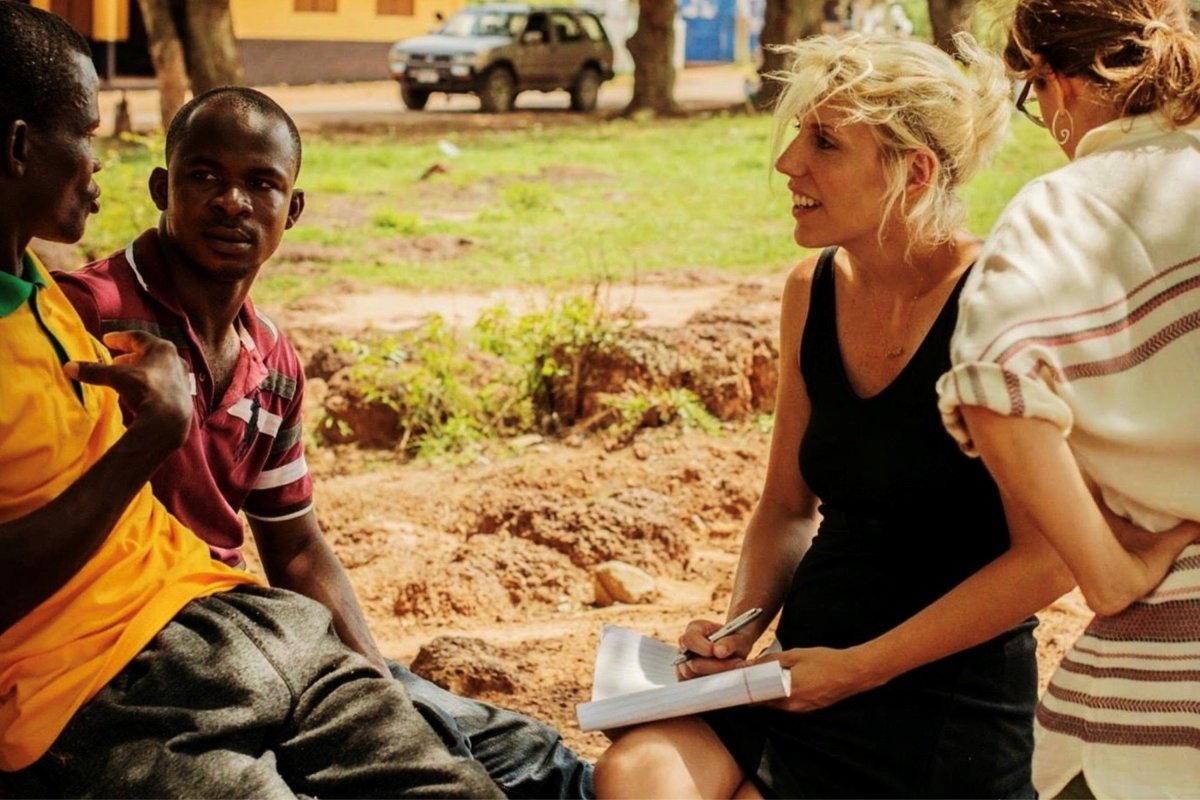I cannot name the exact instant it began. I have always been a high achiever academically, athletically, and socially—a three-sport varsity captain, graduating summa cum laude from a Little Ivy, passing the state bar exam at 25.
High performance was my source of comfort and safety growing up with an impaired mother and a twice-divorced father.
In 2008, I emerged from a traumatic relationship of domestic violence. When it ended, I was in survival mode. It took years for me to process my emotions, let alone have the self-awareness to identify that I was depressed.
My depression took the form of overachieving to the point of exhaustion. Rather than addressing the feelings of shame, fear, and self-hatred that emerged over the years, I threw myself into my career, ascending to an executive at an iconic Los Angeles brand in little over five years.
Being an overachiever and depressed is a strange reality. I was so driven by perfectionism because the only time that I felt good about myself was from the external validation of others.
I had created a protective persona of a super-woman. The mask would only slip when I was alone, crying on my kitchen floor or in the shower, afraid that I would be fired if I didn't exceed expectations or would be friendless if I ever said no to a request or drew a boundary. I was in a constant state of turmoil.
When that failed to stop the sensation that I was damaged beyond repair, I summited Mount Kilimanjaro, trekked through South American countries, completed half marathons, and even a triathlon.

During my vacations, I volunteered internationally on human rights projects in Ghana, Vietnam, Peru, and Thailand. With each success, I felt an addictive moment of self-love from the external validation that I received, but eventually, I'd come down from that emotional high.
As COVID-19 closed the social world around us, my depression began to seep out externally with poor sleep, lack of exercise, and unhealthy romantic choices. I became easily irritated, defensive, and insecure, and walked around with a pit of anxiety. I hit my breaking point after working for 13 consecutive days, realizing that I was driving myself into the ground trying to prove that I was worthy and lovable.
Although publicly sharing mental health struggles has become more normalized, treatment remains shrouded in stigma and miseducation. I didn't even know where to begin, but I knew that I wanted to feel healthy and move my life forward.
This is the moment that led me to Dr. Cassie Yu at the Center for Community Brain Health, who suggested BrainsWay's Deep Transcranial Magnetic Stimulation (Deep TMS), a noninvasive, FDA-cleared treatment process that aids in alleviating symptoms related to mental health conditions, including depression.
For me, these treatments felt almost meditative. I sat back in a comfortable chair, was fitted with the BrainsWay helmet, and relaxed by reading or using the time for talk therapy with Dr. Yu, who had explained that Deep TMS uses electromagnetic pulses to stimulate the neural activity of brain structures found to be associated with depression.
Within a few weeks, I started to notice small changes. From becoming less reactive to improved sleep, which then turned into a balanced lifestyle of fitness, positive relationships, and taking the time to pause and reflect.
I also started to re-evaluate myself. What were my interests and what did I even like to do? I still love volunteering, hiking, and traveling, but I also find joy in the quiet—yoga, cooking at home, and watching a movie on the sofa with my dogs.
Seven months later, I can laugh again, I choose the right relationships, and I enjoy my work, not for the external accolades but because I genuinely love the process. I feel stronger than ever and can see a future outside of the immediate need to please others. I'm excited for my next life chapter.
I'm apprehensive about sharing my story with the world, but it's a crucial moment for me to embrace the young woman who once hesitated to seek help. Now, I'm stepping forward to reassure victims of trauma and abuse that healing is possible.
Through this narrative, I aim to shed light on my journey to feeling whole again. There are always options, even when they may not be immediately apparent, so reach out to a professional who can offer you their care recommendations.
It's crucial to shed light on experiences that may be difficult to discuss, to allow those who are living in darkness to hear from someone who has found their way through to the light. Only by sharing our most vulnerable life moments can we help others. I hope you will stay with me throughout this piece, knowing that ultimately my path leads to a place of healing—healing that is possible for anyone with a similar story.
Jax Bronte is a Los Angeles resident and executive. She is a mental health advocate and believes strongly in the power of community, vulnerability, and helping others. She began noticing changes in her mental health after trying Deep Transcranial Magnetic Stimulation (Deep TMS™).
All views expressed are the author's own.
As told to Carine Harb.
Do you have a unique experience or personal story to share? See our Reader Submissions Guide and then email the My Turn team at myturn@newsweek.com.
Uncommon Knowledge
Newsweek is committed to challenging conventional wisdom and finding connections in the search for common ground.
Newsweek is committed to challenging conventional wisdom and finding connections in the search for common ground.
About the writer
Jax Bronte is a Los Angeles resident and executive. She is a mental health advocate and believes strongly in the ... Read more
To read how Newsweek uses AI as a newsroom tool, Click here.






